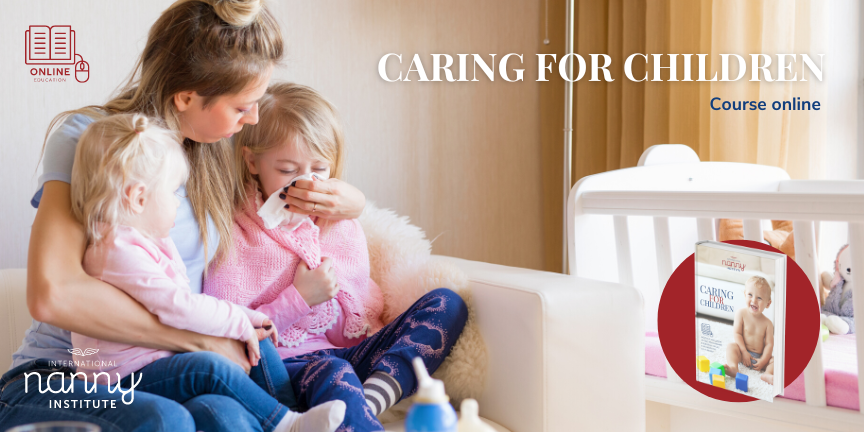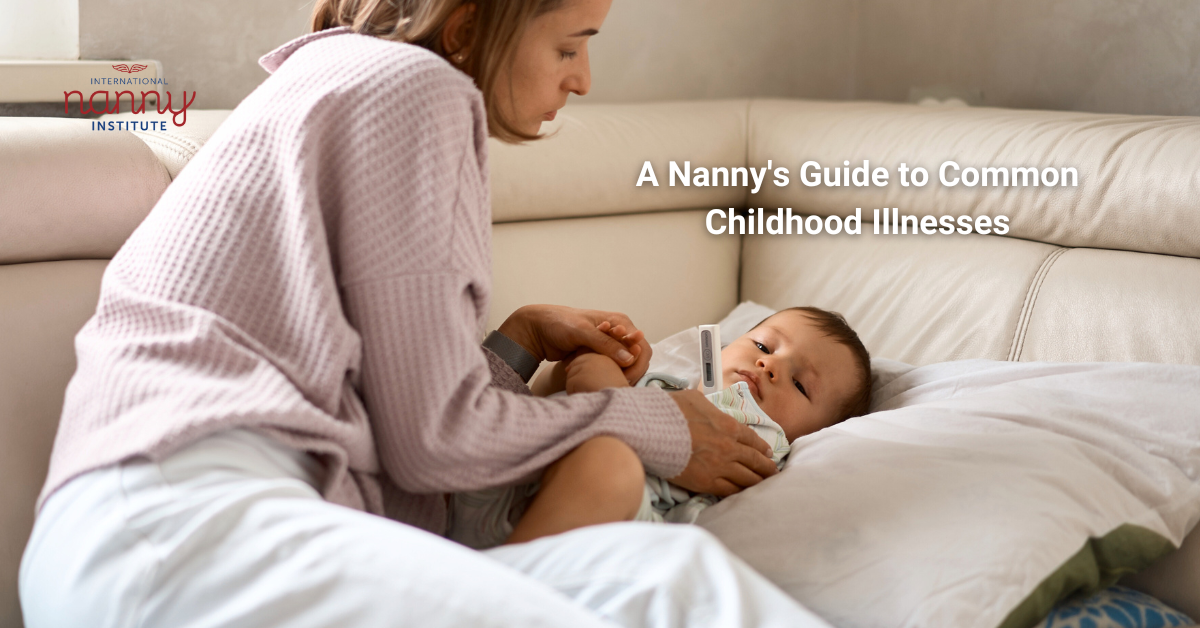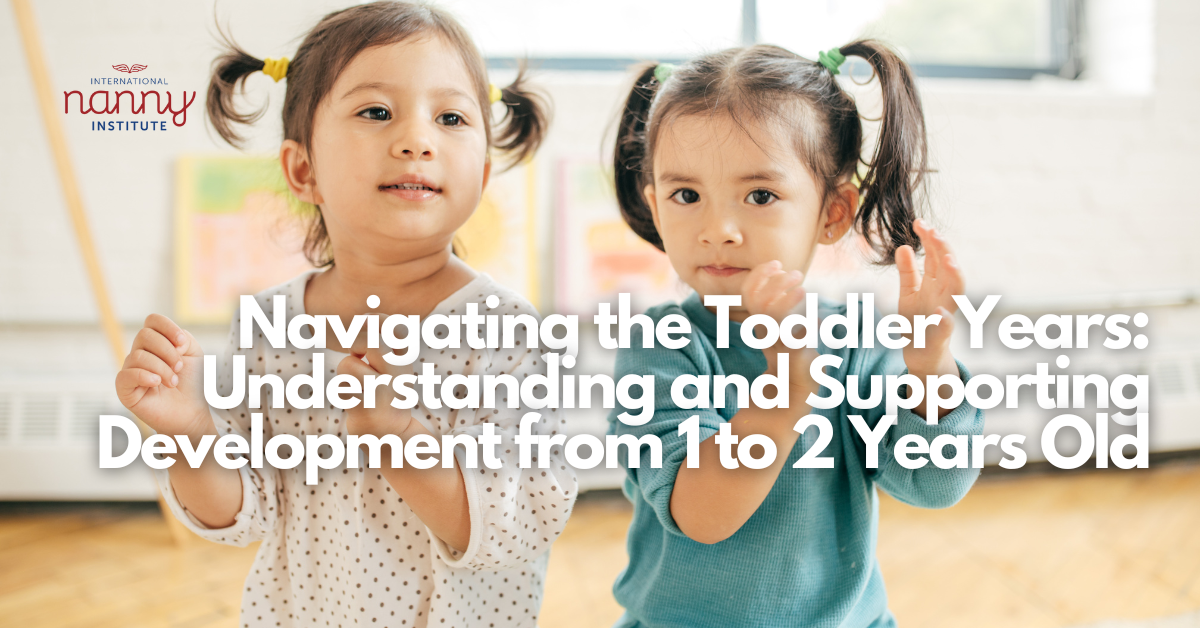A Nanny’s Guide to Common Childhood Illnesses
As a dedicated nanny, ensuring the health and well-being of the children under your care is of utmost importance. One aspect that every nanny should be well-versed in is common childhood illnesses. In this guide, we’ll explore some of the most prevalent childhood illnesses, their symptoms, and how you can provide the best care and support during these times. Let’s dive in!

The Common Cold: Understanding Symptoms and Soothing Remedies
The common cold is a frequent visitor in households with children, and as a nanny, it’s essential to recognise the symptoms. Watch out for sneezing, runny nose, coughing, and mild fever. Comforting a child with a cold can involve providing plenty of fluids, offering warm soups, using saline nasal drops, and ensuring they get enough rest. Home remedies like honey and ginger can also provide relief for coughs and sore throats.
Flu Season: Spotting Influenza and Taking Appropriate Measures
During flu season, it’s crucial to differentiate between a common cold and the flu. Keep an eye out for high fever, body aches, fatigue, and respiratory symptoms. If a child shows signs of the flu, it’s important to encourage rest, maintain hydration, and provide over-the-counter fever reducers if recommended by a healthcare professional. Don’t forget to follow proper hygiene practices and encourage frequent hand-washing to prevent the spread of the flu virus.

Ear Infections: Identifying Signs and Soothing Discomfort
Ear infections can cause significant discomfort for children. Look out for symptoms such as ear pain, pulling or tugging at the ear, irritability, and difficulty sleeping. If you suspect an ear infection, it’s advisable to consult a healthcare professional for proper diagnosis and treatment. In the meantime, you can provide comfort by using a warm compress, keeping the child upright, and administering over-the-counter pain relievers if appropriate and recommended.
Allergies: Identifying Triggers and Responding Appropriately
Childhood allergies can range from food allergies to environmental triggers like pollen or pet dander. Be attentive to symptoms such as sneezing, watery eyes, rashes, itching, or difficulty breathing. If a child has known allergies, ensure you are aware of their triggers and take necessary precautions to prevent exposure. If an allergic reaction occurs, follow the child’s emergency action plan, administer medication as prescribed, and seek medical attention if needed. Creating an allergen-free environment and promoting allergy education can help keep children safe and comfortable.

Being knowledgeable about common childhood illnesses empowers nannies to provide appropriate care and support to children during their time of illness. By familiarising yourself with the symptoms, remedies, and preventative measures, you can ensure a safe and nurturing environment for the little ones in your care. However, why stop here? To further enhance your skills and expand your expertise, we invite you to enrol in our online course, Caring for Children.
By enrolling in our course, you’ll gain in-depth knowledge about common childhood illnesses and their management. Our comprehensive curriculum covers topics such as recognising symptoms, providing comfort, and understanding when to seek medical assistance. You’ll also learn about preventive measures, emergency preparedness, and fostering a healthy environment for children.

Enrolling in the Caring for Children course will not only benefit your career as a professional nanny but also provide you with the confidence and skills needed to navigate common childhood illnesses with ease. Imagine being able to better comfort and care for sick little ones, easing their discomfort and aiding their recovery. Your dedication to learning and growing in your role as a nanny will be evident to parents, who will appreciate your commitment to the well-being of their children.
Remember, it’s important to always follow the guidance of parents when it comes to responding to sickness, unless it’s an emergency. However, with the knowledge gained from our course, you’ll be equipped to provide informed support and assistance, ensuring the child’s well-being while working collaboratively with parents and healthcare professionals.

So, are you ready to take your caregiving skills to the next level? Enrol in our Caring for Children course today and embark on a journey of learning and professional growth. Together, let’s create a nurturing environment where sick children receive the best possible care and comfort.








